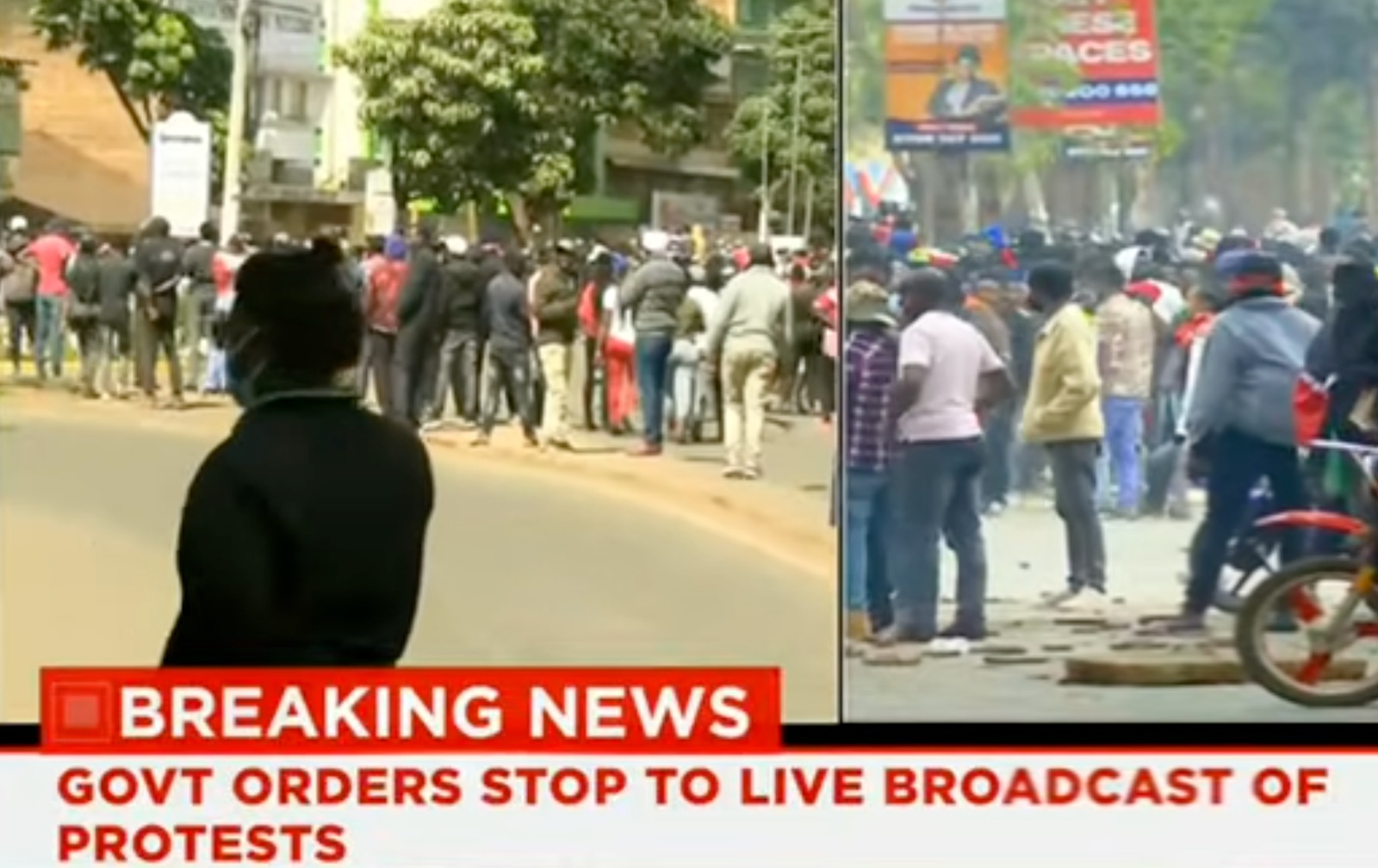
 Live TV coverage of June 25 protests. /SCREENGRAB
Live TV coverage of June 25 protests. /SCREENGRAB
Prominent lawyer Paul Muite has sharply criticised the Communications Authority of Kenya (CA) for its directive ordering television and radio stations to cease live coverage of ongoing anti-government demonstrations across the country.
The protests, led predominantly by Gen Z, are being held in major cities including Nairobi, Mombasa, Eldoret, Kisumu, and Nakuru to commemorate those who lost their lives during the deadly June 25, 2024 protests.
In a letter dated June 25, and addressed to all television and radio stations, the CA directed broadcasters to halt any live coverage of the demonstrations.
The directive, signed by Director General David Mugonyi, cited Articles 33(2) and 34(1) of the Constitution of Kenya and Section 461 of the Kenya Information and Communications Act, 1998, as the legal basis for the ban.
The letter warned that failure to comply would result in regulatory action as stipulated by law.
“The live coverage of the June 25, 2025 demonstrations are contrary to Articles 33(2) and 34(1) of the Constitution of Kenya and Section 461 of the Kenya Information and Communications Act, 1998,” the letter stated.
“This is therefore to direct all television and radio stations to stop any live coverage of the demonstrations forthwith. Failure to abide by this directive will result in regulatory action.”
However, Muite faulted the Authority’s move, arguing that it infringes on media freedom as enshrined in Article 34 of the constitution.
“Media live coverage of the ongoing peaceful demonstrations pursuant to Media Freedom, Article 34, is not incitement to violence. Kenyans not in the demonstrations need to be kept fully abreast by the media through live coverage of the goings-on,” Muite said on X.
He further referenced a previous judicial review, by Prof Justice Chigiti’s ruling in Application E041/23, which found that the CA had violated Article 34 regarding media live coverage of the March 20, 2023 Azimio demonstrations.
Muite insisted that the right to information and media freedom must be upheld, especially during moments of national significance.
The CA’s directive has sparked widespread debate, with many Kenyans and civil society groups expressing concern over what they see as an attempt to stifle press freedom and limit public access to information.
As demonstrations continue nationwide, the role of the media in providing real-time updates remains a contentious issue.
The unfolding events highlight the ongoing tension between regulatory authorities and advocates of media freedom, raising critical questions about the balance between public order and the constitutional right to information.

















